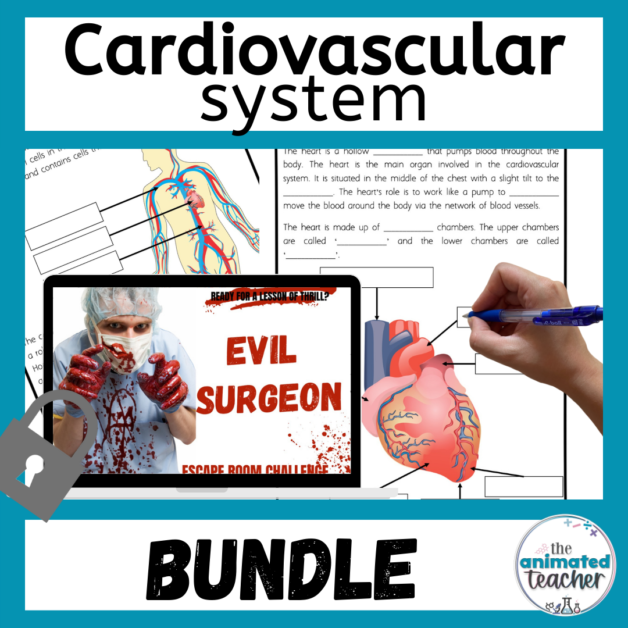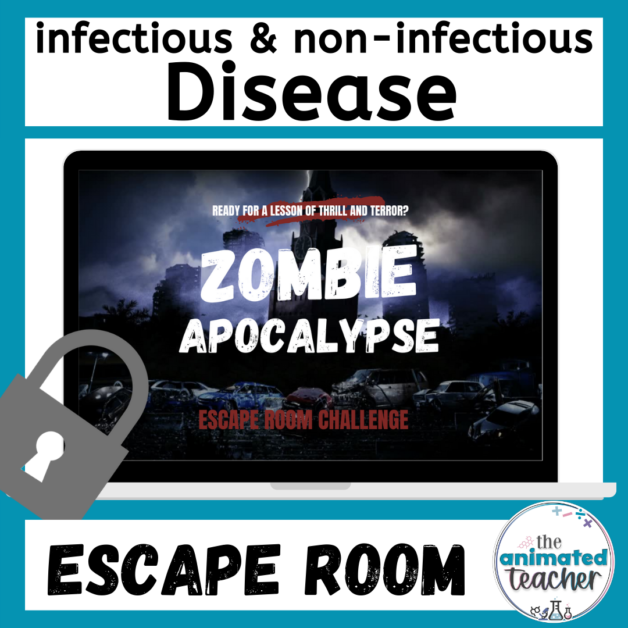10 Early Finisher Activities in Science: Igniting Curiosity and Critical Thinking
In every science classroom, there are students who zoom through tasks with lightning speed, leaving their peers in the dust. While their efficiency is commendable, it’s important to ensure that these early finishers remain engaged and challenged. That’s where a well-curated arsenal of early finisher activities comes into play.
In this blog post, we’ll explore some of the best early finisher activities in science that will not only keep these eager learners occupied but also foster a deeper understanding of scientific concepts.
Early Finisher Activities in Science

Disclaimer: This blog post, ‘Early Finisher Activities in Science’, may contain affiliate links or links to resources that I have created. Read full disclaimer here. activ
Best Early Finisher Activities in Science
1. Crosswords: Unraveling Scientific Terminology
Crossword puzzles are a fantastic way to reinforce scientific vocabulary. By providing a grid filled with clues related to a particular topic (e.g., the periodic table or cell biology), early finishers get to apply their knowledge in a fun and engaging manner. Not only does this activity improve their grasp of terminology, but it also enhances their cognitive skills and critical thinking. Grab some ready to go crosswords here.
2. Thinking Puzzles/Einstein Puzzles: A Mental Workout
Einstein puzzles, known for their logic-based challenges, are an excellent way to stimulate critical thinking in students. These puzzles often involve a set of clues that lead to a single solution. Early finishers can spend their time dissecting the information, making connections, and honing their deductive reasoning skills. This activity not only entertains but also nurtures a scientific mindset. See an example of an Einstein Puzzle here.
3. Scientific Method Review: Inquiry
Engaging early finishers in a review of the scientific method is a fruitful endeavor. Provide students with experiment examples and challenge them to identify the steps of the scientific method involved. Encourage them to consider questions like: What is the hypothesis? What are the variables? How can the experiment be improved? This activity not only reinforces essential scientific skills but also encourages a deeper understanding of the scientific process.
Early Finisher Activities in Science
My favorite no-prep early finisher activities
4. Design Your Own Experiment: Fostering Creativity and Inquiry
Encourage early finishers to step into the shoes of a scientist and design their own experiments. Provide them with a basic framework or allow them to choose a topic of interest. This activity empowers students to think critically about variables, controls, and methodologies, while also promoting creativity and independent inquiry. It’s a hands-on way to nurture their scientific curiosity.
5. Escape Rooms: Collaborative Problem-Solving
Bring an element of excitement and teamwork into the classroom by introducing science-themed escape rooms. These immersive challenges require students to solve a series of puzzles and riddles to “escape” from a scenario. Early finishers can work together, applying their scientific knowledge and problem-solving skills to crack codes, decipher clues, and ultimately succeed in the mission. This activity not only promotes collaboration but also reinforces scientific concepts in a dynamic and memorable way.
Grab a FREE digital escape room below by signing up to my email list!
Or grab some topic specific digital escape rooms here.
6. Practice scientific variable skills
Understanding scientific variables are so important for progression into senior sciences. Help students to review their understanding and practice identifying scientific variables in a variety of scenarios.
What to do:
- Provide students with a set of scenarios or experiments and ask them to identify and label the independent, dependent, and controlled variables. You can use real-world examples or create hypothetical situations for them to work through.
- Encourage them to think critically about how changing one variable affects the others. This can be done through written responses or discussions in pairs or small groups.
- Offer a mix of straightforward scenarios and more complex ones to challenge students at different levels of understanding.
- If you want a ready to go resource check this one out with a Train your pet dragon theme.
Early Finisher Activities in Science
7. Create a Kahoot or Quizlet
Have students create a Kahoot or Quizlet to test or reinforce the content. When its finished you can play it as a class!
What to do:
- Explain to students that they will be responsible for creating a quiz to review the content covered in class. This can be done individually or in pairs/small groups.
- Provide clear guidelines for the quiz format and content. For example, specify the number of questions, the types of questions (multiple choice, true/false, short answer, etc.), and the topics to be covered.
- Have them include explanations or hints for each answer to ensure they understand the material.
- Once completed, allow the student(s) to share their Kahoot or Quizlet with the class for a fun and interactive review session.
8. Explore Virtual Labs
If available, direct them to online virtual labs or simulations related to the topic. PhET simulations or labXchange are a good place to start.
What to do:
- Direct students to online platforms that offer virtual labs or simulations related to the current topic. PhET and labXchange are reliable sources for interactive science experiences.
- Provide specific instructions for what they should focus on during the virtual lab, such as observing specific phenomena, making predictions, or drawing conclusions based on the data they collect.
- Ask students to record their observations and findings in a lab report format, including variables, procedures, data, and conclusions.
Early Finisher Activities in Science
9. Research project
Assign a mini research project related to the current topic. Students can investigate a specific aspect in more detail. This could be as small as answering one specific question, or creating a presentation or poster for a topic.
What to do:
- Assign a focused research task related to the current topic. Provide clear guidelines on the scope of the project, including the specific question or aspect they should investigate.
- Encourage students to use reliable sources such as scientific journals, reputable websites, and books. Emphasize the importance of proper citation and referencing.
- Depending on the complexity of the topic, students can create a presentation, poster, or written report to share their findings with the class.
- Allow time for students to present their research to the class, fostering a culture of sharing and learning from peers.
Want some ideas? Here is a FREE resource containing 20 science research ideas for early finishers.
10. Peer Tutoring
Peer tutoring is a collaborative learning activity where students work together in pairs or small groups to help each other understand and master the material. In this case, students who finish early will have the opportunity to assist their peers who may be struggling with the concepts.
What to do:
- Observe the class and identify students who may benefit from extra help in understanding the material. Pair them with students who have demonstrated proficiency in the topic.
- Clearly communicate the purpose and benefits of peer tutoring. Emphasize that both the tutor and the tutee can benefit from this collaborative learning experience.
- Provide guidelines for how the peer tutoring session should be conducted. For example, encourage active listening, clear explanations, and patience.
Early Finisher Activities in Science
Conclusion
Don’t get stuck next time your student’s finish work early. Have these ideas ready to go so you’re students can keep learning and you don’t have to come up with ideas on the spot!
Comment below with your favorite early finisher activities in science.
Early Finisher Activities in Science
About the Author

Katrina Harte is a multi-award winning educator from Sydney, Australia who specialises in creating resources that support teachers and engage students.
Early Finisher Activities in Science









